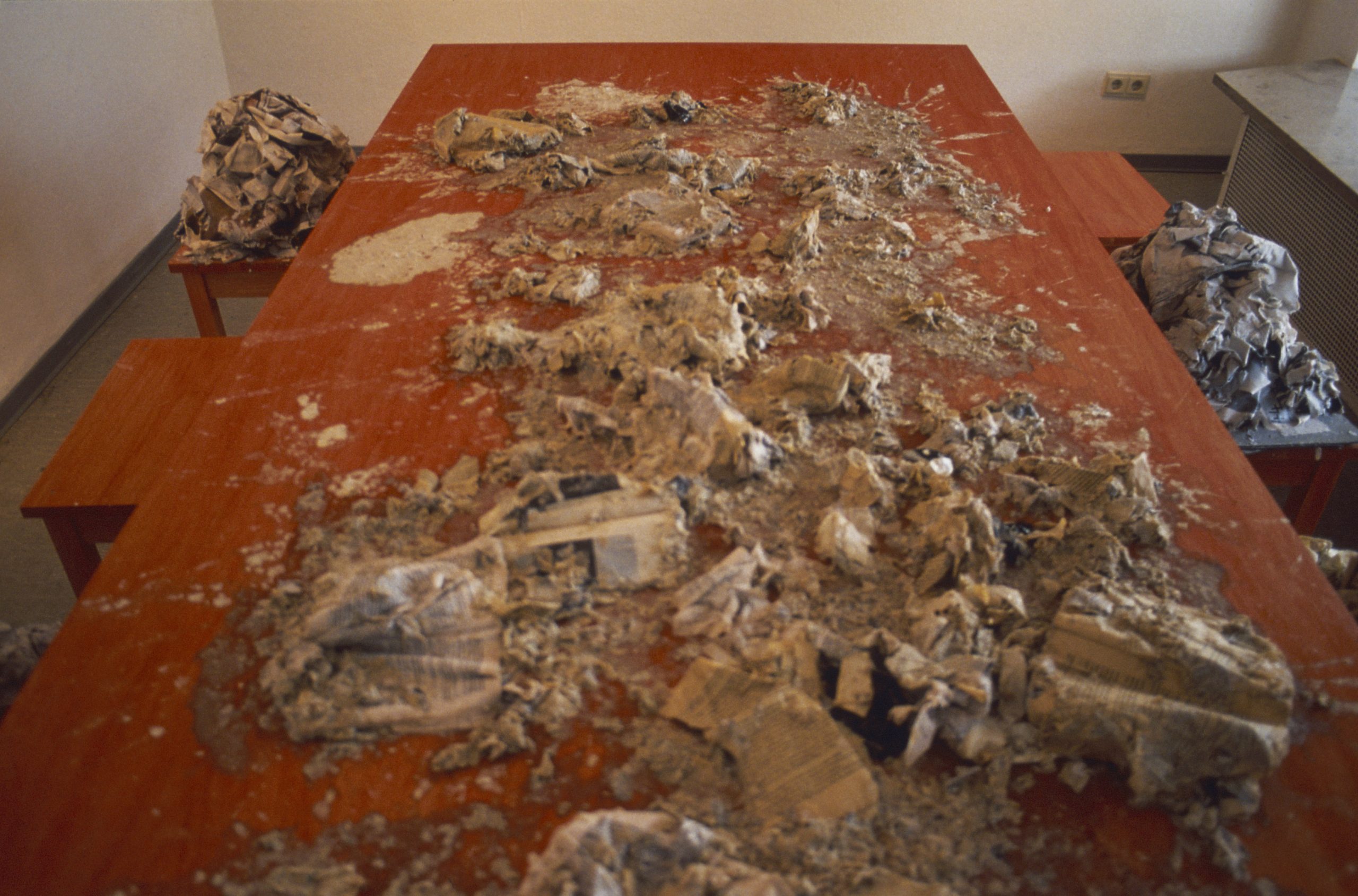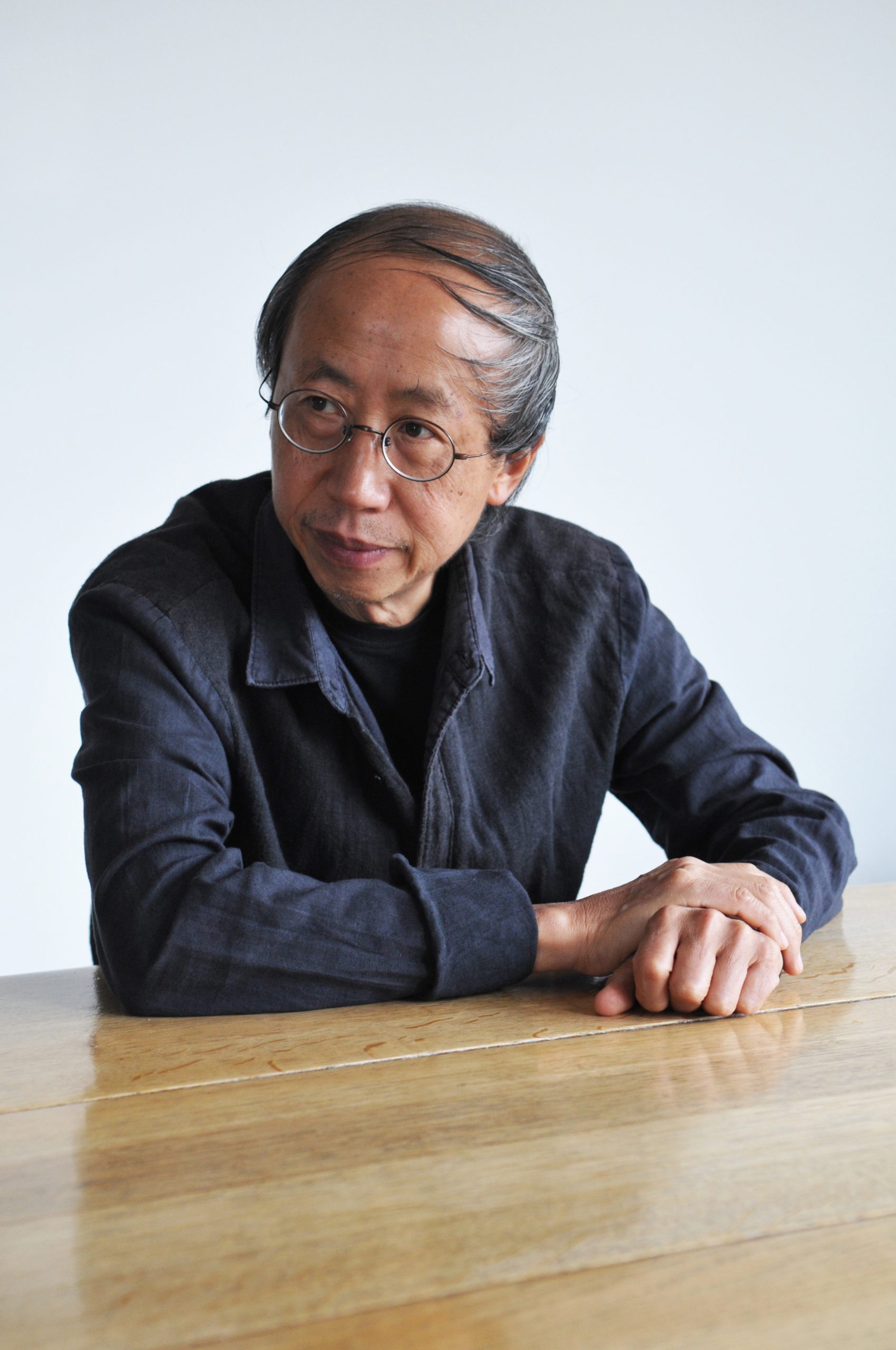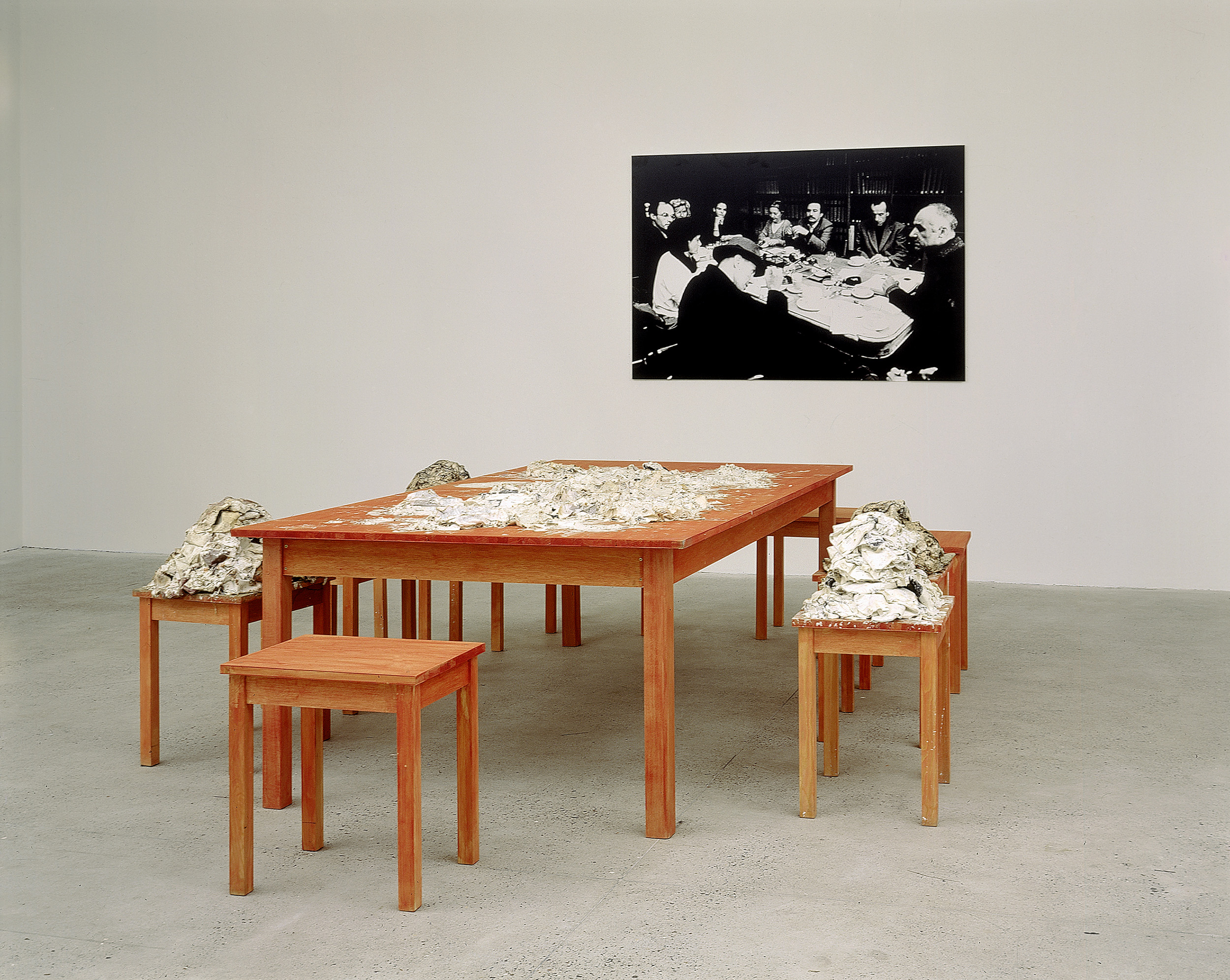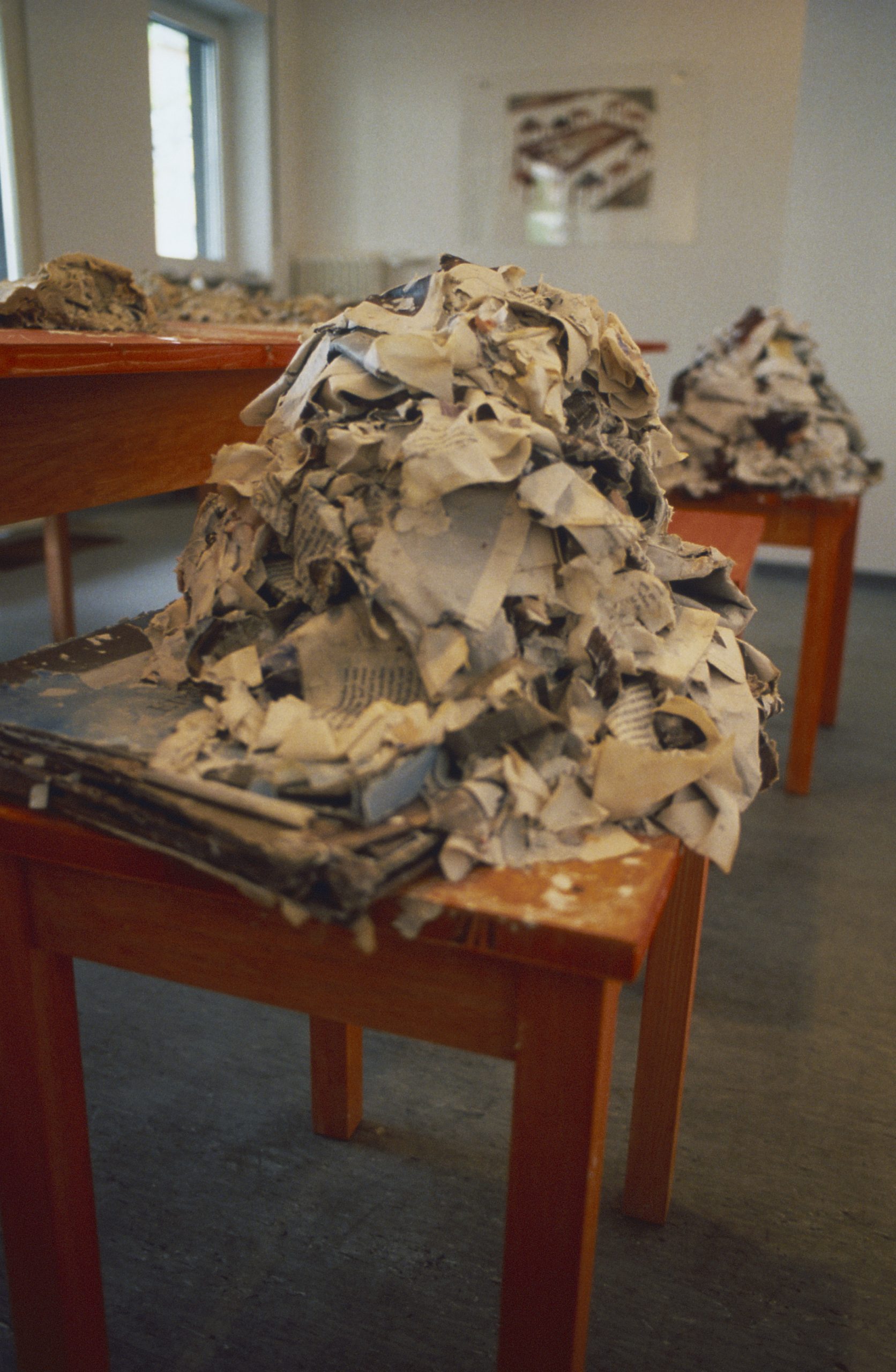
Artist Profile
A founder of the avant-garde group Xiamen Dada, literally “Dadaists of Xiamen,” Huang Yong Ping has famously asserted that the true revolutionary artist must abolish concepts of “art” once and for all. This subversive spirit characterized a number of art experiments the artist conducted, including a series of “book washing” projects begun in 1987.
In Huang’s own words: “In 1987, I put the books from the bookshelves in my home into the washing machine and switched it on, then put the entire pulp mixture back onto the shelves.”1 Huang developed this kind of deliberate destruction as a strategy to disrupt conventional power structures in art production, exhibition, and art history.
Huang applied this same “book washing” strategy to create the work Devons-nous encore construire une grande cathédrale? (Should We Construct Another Cathedral?). The work was inspired by a historic conversation between the artists Joseph Beuys, Enzo Cucchi, Anselm Kiefer, and Jannis Kounellis, depicted in the photograph hanging on the wall above Huang’s work. Calling for the reconstruction of European culture, Beuys proclaimed, “Now we have to carry out a synthesis with all our powers, and build a new cathedral.” By washing the text that documented this conversation, Huang irreverently destroyed their plans for a new European symbol. The resulting pulped remains of these artists’ collective vision question the validity of such grand historical discourses.

“Washing books is not about making culture cleaner; rather, it makes its dirtiness more evident to the eye.”—Huang Young Ping 2
Footnotes
- 1
Huang Young Ping as quoted by Hou Hanru, “Change is the Rule,” in House of Oracles: A Huang Yong Ping Retrospective, eds. Philippe Vergne and Doryun Chong (Minneapolis: Walker Art Center, 2005), 14.
- 2
Ibid.
Works on View
Devons-nous encore construire une grande cathédrale? (Should We Construct Another Cathedral?), 1991
Table, stools, black-and-white photograph, and papier-mâché
Dimensions variable
Collection Fondation Cartier pour l’art contemporain, Paris (acq. 1992)

